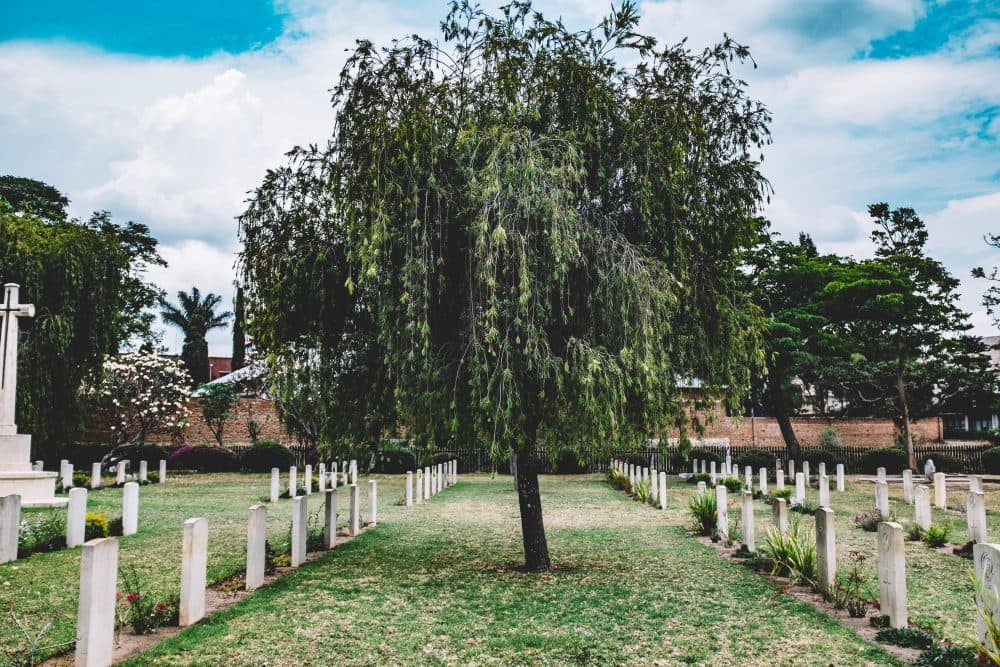Advertisement
Commentary
Safe Passage Through The Tombstones: Why I Attend My Patients' Memorials

On a recent rainy Saturday I made my way to Brockton, Mass., having been invited by the family of one of my patients to say a few words at his funeral.
The ceremony was held in a Haitian-American church and 95 percent of the 2-hour mass and celebration of his life was held in Haitian Creole. I didn’t understand a word, and I didn’t need to. The bond between family, friends and those of us who cared for him went beyond spoken language; it created a true community.
I’m not sure when I started going to the funerals, wakes and celebrations of the lives of my patients who had died. My memory is that I thought it would be a nice gesture to bring closure and to honor the shared, deep connection that had developed between us as I cared for them as a primary, hospitalist or palliative care doctor. What I quickly learned was that being present at these memorials gave me much more than I could ever reciprocate.
I have gone for so many different reasons over the years. For Sandra, I went to bear witness to her courage. Her whole life she had prided herself on being able to live in her own home with an independence she defined in the context of her physical disability. Her courage guided me and her care team to honor her wishes and extubate her, rather than confine her to a chronic respirator in a facility for the rest of her life.
Sometimes, attending these memorials is about resolution, a chance to breach the distance that develops during hard times and through difficult discussions, splintering families and often long, trusted relationships between patients and doctors.
For Robert, I went to say sorry — sorry that we couldn’t do a better job, and that we would have made different decisions in hindsight. I went to acknowledge that despite our best efforts and the best medical care we could provide, it was not enough. It was a confession of humility given to his family and loved ones, and they gave generous absolution, drawing from a core humanity we shared.
For Janet, who lived many years beyond what anyone expected but died suddenly when equipment malfunctioned, I went to join a community in saying goodbye to a life well-lived. We acknowledged the impact she had made on so many lives. The celebration had a hint of sadness for the years she would not live, but it was much more focused on stories of her joy and adventures than on mourning.
For John, who used music to heal after a devastating motor vehicle accident that left him paralyzed, I went to listen one more time to the CDs he had made for me, and then to hear from so many others who had had the same experience. His obituary was written in the hundreds of CDs he had crafted for us, and his spirit lived on in the music we played that day.
Sometimes, attending these memorials is about resolution, a chance to breach the distance that develops during hard times and through difficult discussions, splintering families and often long, trusted relationships between patients and doctors. The services give us time to acknowledge our differences while embracing the person who had passed. They give us a chance to share the human experience of pain, suffering and anguish that is often a part of watching a loved one die.
The practice of medicine, especially for those of us who care for the actively dying, is full of graveyards that we revisit. To do so is only human.
During medical school, my senior resident was a man in his 50s named Anton. Anton had been a practicing physician in Russia for more than 30 years before coming to the United States. He was famous for repeating the line that every physician has their own graveyard, and each night before sleep he or she walks through the tombstones revisiting these patients. This bit of wisdom was deeply disturbing to me as a medical student. But after practicing for nearly 20 years, I find comfort in his words.
The practice of medicine, especially for those of us who care for the actively dying, is full of graveyards that we revisit. To do so is only human. The time I spend with those patients' families and friends at funerals, wakes and private ceremonies help me as I walk through my own graveyard of patients. It allows me to acknowledge the loss, and to move on and try to help others the best I can. These funerals are a gift of shared human experience that creates a safe passage through the tombstones.
John Loughnane, MD, is Chief of Innovation at Commonwealth Care Alliance and Winter Street Ventures. Dr. Loughnane is board certified in family practice, hospice and palliative care medicine, and founded CCA’s Life Choices Palliative Care Program.